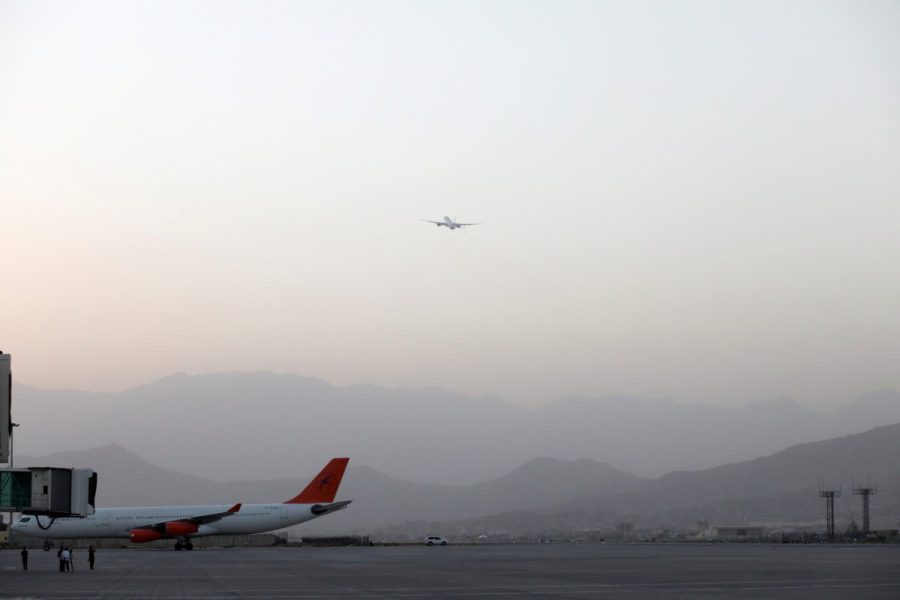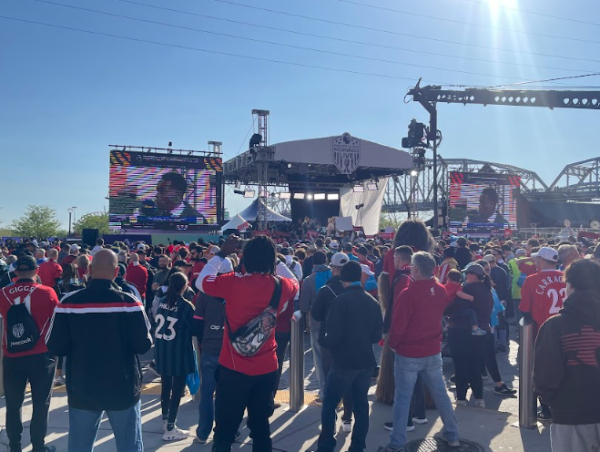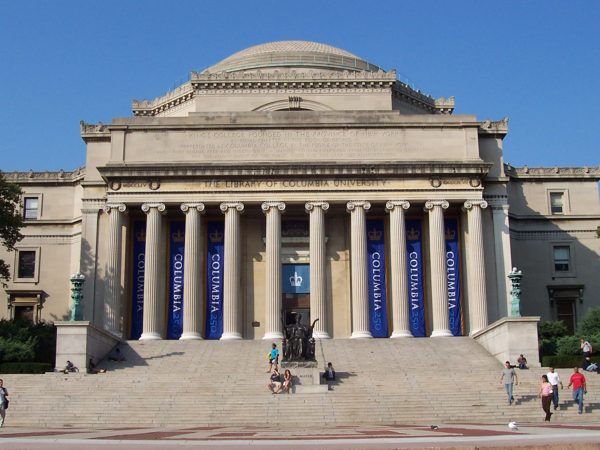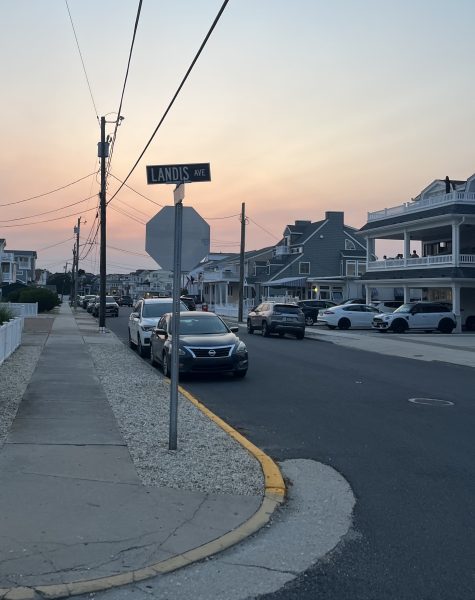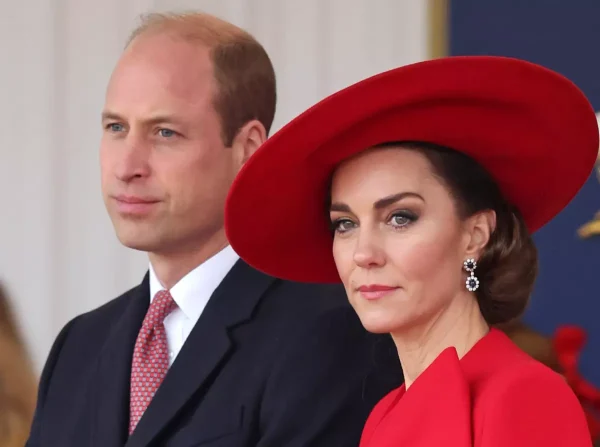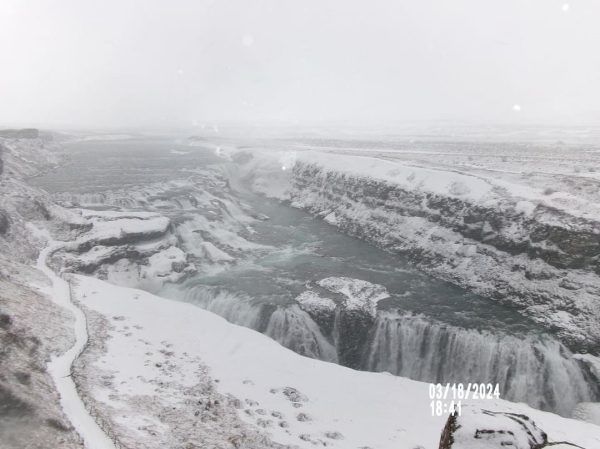Afghan Toddler in American Custody Limbo
West Asia News Agency/via REUTERS
An aircraft leaves airport in Kabul in September 2021, during the first large-scale departure since the frantic withdrawal in August.
A home in central Afghanistan was targeted in September 2019 to raid by United States and Afghan special operations forces. They suspected foreign fighters associated with al-Qaida resided there. In the rubble, they found a baby. “Baby L” or “Baby Doe,” as court documents refer to the baby, was found in the destruction with a fractured skull, broken femur, and second-degree burns. The raid had killed her parents and five siblings, so she was placed in the temporary medical care of the U.S. military. In typical Afghan traditions, Baby Doe should then have been placed in the care of her closest relatives, but as the U.S. government, the Afghan government, and the International Committee of the Red Cross worked to find local relatives, an attorney for the U.S. Center for Law and Military Operations took interest in her case.
Major Joshua Mast, who was serving in Afghanistan at the time, was involved in her welfare and advocated for her transfer to the U.S. He wanted her to be placed for adoption away from “a country known for child abuse, neglect, and sexual trafficking of children,” as he once wrote. Mast successfully petitioned a Virginia court to grant him an adoption order which allowed him to take custody in December 2019. While Doe was living with the Masts, the American and Afghan governments partnered with the International Committee of the Red Cross to locate her paternal cousin and his wife referred to as John and Jane Doe. The baby was placed in their care in February 2020 and stayed with them for 18 months.
Unbeknownst to them, Mast was working around loops in the American legal system to get her back. In December 2020, a judge granted his adoption order and determined she was stateless. This has laid the foundation for his ongoing custody claim. During the U.S. evacuation from Afghanistan, Mast managed to get the Does on a plane to America, urging them that it was for the baby’s medical care. Days after they were placed in refugee housing, Mast accompanied a social worker to them and took Baby Doe. According to the Does’ federal lawsuit, Jane Doe collapsed to the floor, crying for her baby and Mast stomped on John’s foot and ran away with the girl.
Now, Baby Doe is three and lives with the Masts. The current custody battle is rough and confused with two very different cultures. The Does, residing in Texas, argue that “She’s living with a person who kidnapped her.” The Masts, living in North Carolina, argue that it is an act of Christian faith to save her from her culture. The Pentagon, State Department, and Department of Justice have all stated that the child should be reunited with her relatives, in accordance with tradition and military law.
In the Pennridge school district, rarely is there a custody case centered on religion; there have been a few international cases. One case is occurring currently. Although one parent is out of the country, all the legal proceedings happened in America. In international cases, one must get in touch with “Domestic relations and family court are main areas where custody stuff happens,” according to Pennridge social worker Joseph Werner.
A country with 2 million orphans, Afghanistan has a complex relationship with custody. Under Afghan law, children cannot be adopted by strangers, so until a relative shows up, orphans remain in limbo. While there are organizations trying to work around Islamic law to allow these children happy homes, it all comes down to interpretations of the Qur’an. In ancient times, this law was to protect children from a common practice of stealing a boy and stripping them of their biological family ties to gain fighters as protection for a tribe. Now, much of the concern on allowing adoption is Maharam, the concept of incest which covers immediate and extended family and relatives in-law, but not adopted children. This means that once an adopted child enters puberty, they would become taboo to their adoptive parents.
Baby Doe has a family who loves her and wants to take care of her. The identities of her parents are disputed. The Masts claim they were Al-Qaeda combatants correctly targeted while the Does claim they were actually farmers. No matter who they were, their family was victims of American aggression and now she is disconnected from her culture. Retired U.S. Marine John King has not experienced any situation like this one, as this is fairly unprecedented, but he recalls a friend who was adopted from Vietnam during the war, “he has a difficult relationship with his adopted family because he wants to know where he’s from. The girl will have a hard time once she learns her biological family was killed.” A similar sentiment is shared by the U.S.
Sources
https://www.pbs.org/newshour/world/orphaned-afghan-child-still-in-custody-of-u-s-marine-accused-of-abducting-her
https://apnews.com/article/afghan-baby-us-marine-custody-battle-b157557538b84b288a0a8415735e24ab
https://www.cbsnews.com/news/afghanistan-war-orphan-marine-couple-joshua-stephanie-mast-custody-battle-tells-their-story/
https://www.hrw.org/news/2022/11/16/afghan-child-custody-case-exposes-us-wartime-abuses
https://abcnews.go.com/Politics/baby-doe-orphaned-afghanistan-raid-custody-battle-marine/story?id=96313527
https://abcnews.go.com/WNT/story?id=131580&page=1
http://www.washingtonpost.com/wp-dyn/content/article/2010/12/31/AR2010123103723.html
https://www.thedailybeast.com/anti-adoption-traditions-in-the-muslim-world-benefit-al-qaeda-recruiters
https://www.stltoday.com/news/national/afghan-couple-accuse-us-marine-of-abducting-their-baby/article_004f0396-cf44-5432-b5dd-50cfd7fae231.html
Grace King, Grade 12, Interests/hobbies include executive council, mock trial, buildOn, Mini-THON, theater, farming, watching movies, and spending time...
